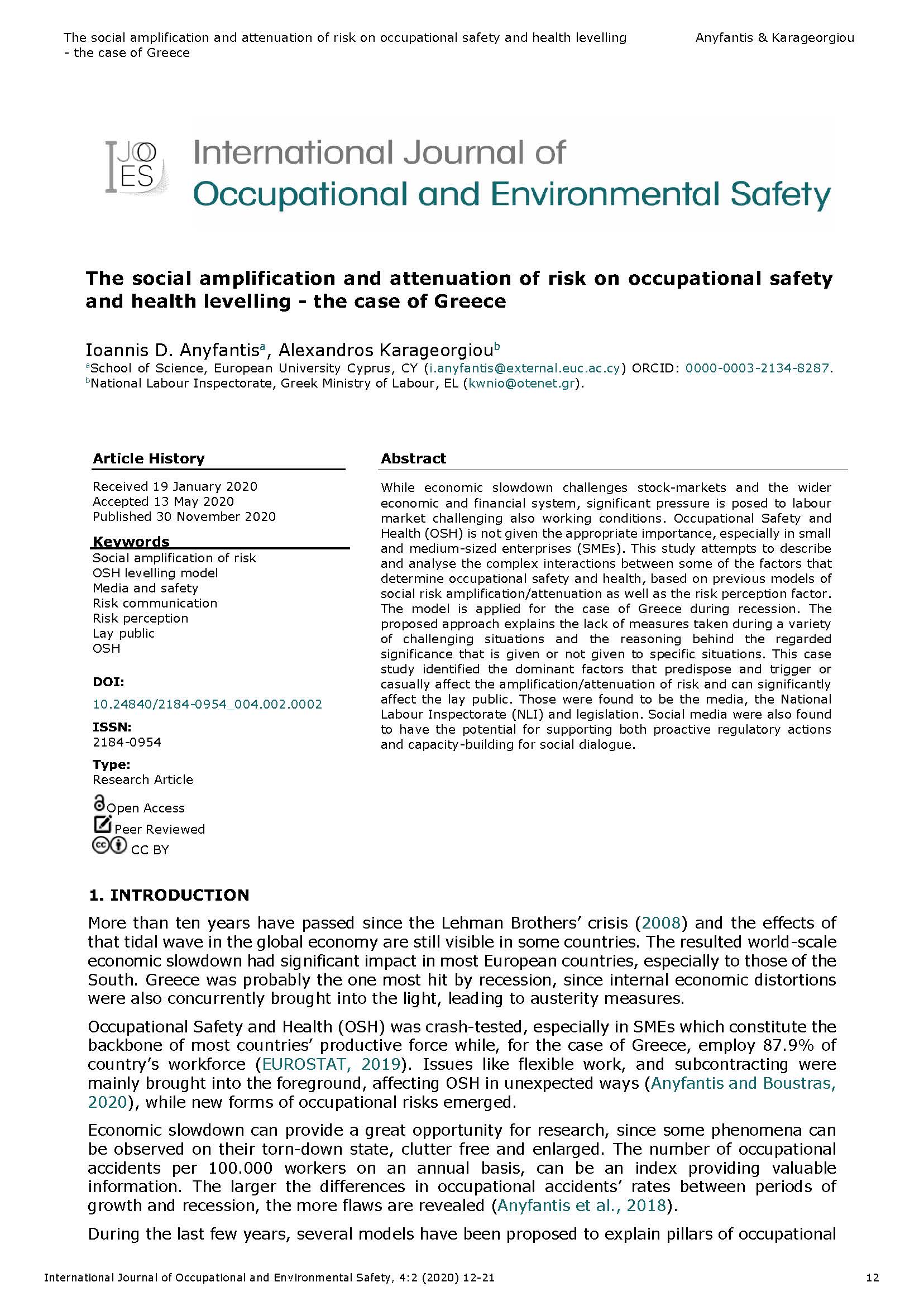The social amplification and attenuation of risk on occupational safety and health levelling - the case of Greece
Main Article Content
Abstract
While economic slowdown challenges stock-markets and the wider economic and financial system, significant pressure is posed to labour market challenging also working conditions. Occupational Safety and Health (OSH) is not given the appropriate importance, especially in small and medium-sized enterprises (SMEs). This study attempts to describe and analyse the complex interactions between some of the factors that determine occupational safety and health, based on previous models of social risk amplification/attenuation as well as the risk perception factor. The model is applied for the case of Greece during recession. The proposed approach explains the lack of measures taken during a variety of challenging situations and the reasoning behind the regarded significance that is given or not given to specific situations. This case study identified the dominant factors that predispose and trigger or casually affect the amplification/attenuation of risk and can significantly affect the lay public. Those were found to be the media, the National Labour Inspectorate (NLI) and legislation. Social media were also found to have the potential for supporting both proactive regulatory actions and capacity-building for social dialogue.

